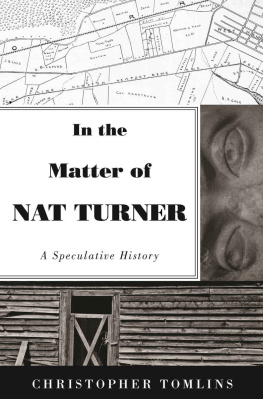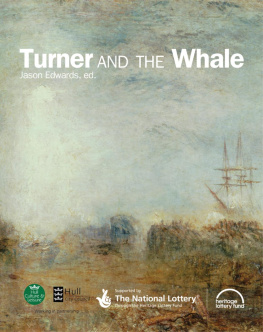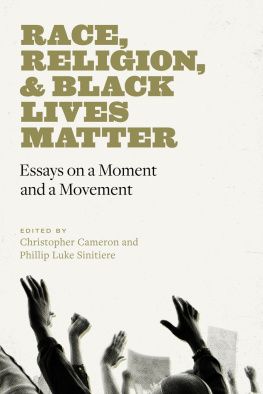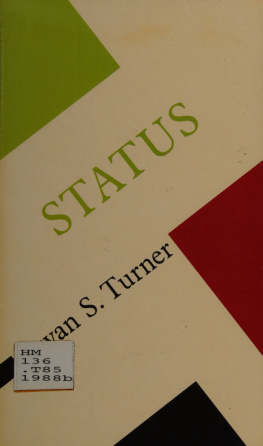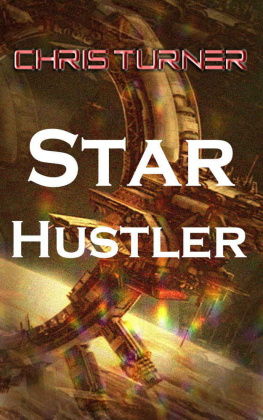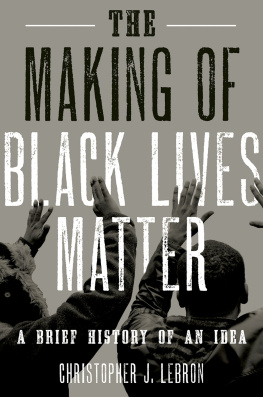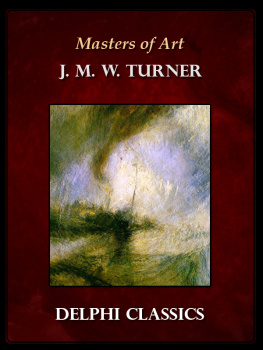Christopher Tomlins - In the Matter of Nat Turner
Here you can read online Christopher Tomlins - In the Matter of Nat Turner full text of the book (entire story) in english for free. Download pdf and epub, get meaning, cover and reviews about this ebook. year: 2020, publisher: Princeton University Press, genre: Detective and thriller. Description of the work, (preface) as well as reviews are available. Best literature library LitArk.com created for fans of good reading and offers a wide selection of genres:
Romance novel
Science fiction
Adventure
Detective
Science
History
Home and family
Prose
Art
Politics
Computer
Non-fiction
Religion
Business
Children
Humor
Choose a favorite category and find really read worthwhile books. Enjoy immersion in the world of imagination, feel the emotions of the characters or learn something new for yourself, make an fascinating discovery.
- Book:In the Matter of Nat Turner
- Author:
- Publisher:Princeton University Press
- Genre:
- Year:2020
- Rating:4 / 5
- Favourites:Add to favourites
- Your mark:
- 80
- 1
- 2
- 3
- 4
- 5
In the Matter of Nat Turner: summary, description and annotation
We offer to read an annotation, description, summary or preface (depends on what the author of the book "In the Matter of Nat Turner" wrote himself). If you haven't found the necessary information about the book — write in the comments, we will try to find it.
In the Matter of Nat Turner — read online for free the complete book (whole text) full work
Below is the text of the book, divided by pages. System saving the place of the last page read, allows you to conveniently read the book "In the Matter of Nat Turner" online for free, without having to search again every time where you left off. Put a bookmark, and you can go to the page where you finished reading at any time.
Font size:
Interval:
Bookmark:
In the Matter of
NAT TURNER
Meherrin Road, south of Cross Keys Road, north of Boykins, Virginia
SIC SEMPER TYRANNIS
State Historical Marker U 122
Nat Turners Insurrection
On the night of 2122 August 1831, Nat Turner, a slave preacher, began an insurrection some seven miles west with a band that grew to about 70. They moved northeast toward the Southampton County seat, Jerusalem (now Courtland), killing about 60 whites. After two days militiamen and armed civilians quelled the revolt. Turner was captured on 30 October, tried and convicted, and hanged on 11 November: some 30 blacks were hanged or expelled from Virginia. In response to the revolt, the General Assembly passed harsher slave laws and censored abolitionists.
Department of Historic Resources. 1991
In the Matter of
NAT TURNER
A Speculative History
CHRISTOPHER TOMLINS
PRINCETON UNIVERSITY PRESS
Princeton & Oxford
Copyright 2020 by Princeton University Press
Requests for permission to reproduce material from this work should be sent to permissions@press.princeton.edu
Published by Princeton University Press
41 William Street, Princeton, New Jersey 08540
6 Oxford Street, Woodstock, Oxfordshire OX20 1TR
press.princeton.edu
All Rights Reserved
Library of Congress Control Number: 2019953980
ISBN 978-0-691-19866-8
eISBN 9780691199870
Version 1.0
British Library Cataloging-in-Publication Data is available
Editorial: Eric Crahan, Pamela Weidman, and Thalia Leaf
Production Editorial: Nathan Carr
Text Design: Pamela L. Schnitter
Jacket/Cover Design: Pamela L. Schnitter
Jacket images: (Top) Map of Elizabeth City County, VA, from actual surveys by E.A. Semple, Wm. Ivy, and C. Hubbard, 1892. Library of Congress (Right) Marble head of Memnon, student of Herodes Atticus, ca. 170 AD. Photo: bpk Bildagentur / Altes Museum, Belin / Juergen Liepe / Art Resource, NY (Bottom) Green Hill Plantation, slave quarters, State Route 728, Long Island, Campbell County, VA.
Production: Danielle Amatucci
Publicity: Jodi Price and Kate Farquhar-Thomson
FOR ANN, WITH LOVE
One might speak of an unforgettable life or moment even if all men had forgotten it. If the nature of such a life or moment required that it be unforgotten, that predicate would not imply a falsehood but merely a claim not fulfilled by men, and probably also a reference to a realm in which it is fulfilled: Gods remembrance.
WALTER BENJAMIN (1923)
And we are witnesses of all things which he did whom they slew and hanged on a tree.
ACTS 10:39
- ix
O lost, and by the wind grieved, ghost, come back again.
THOMAS WOLFE (1929)
This book attempts to recover both a historical personage and his way of thinking (his mentalit) from tiny shards of evidence on whichin the absence of anything elseI have pressed as hard as I can, and as often as necessary, guided (both positively and negatively, but always with appreciation) by the labors of others who have been this way before me. Notwithstanding the almost complete lack of the kinds of material from which intellectual history is customarily written, I have come to think of this book as an attempt to create an intellectual history of Nat Turner. As important, the book is also an attempt to demonstrate what the creation of history means to me as an intellectual practice.
My abiding impression of Nat Turner is overwhelmingly one of a person unavailed by history, a person whose very archival evanescence renders him, quite involuntarily, an enigma, a signifier pushed and pulled toward an extraordinary and contradictory array of signifieds. asks the question What is the past?
The asks this question because it is precisely the question that Styrons book provoked. At the time of its publication, and for years following, Styrons Confessions was simultaneously condemned for traducing the historical Nat Turner, and defended as a book faithful in all essentials to the past on which it ostensibly drew. The quarrel pitted African American intellectuals against Styron himself, and against contemporary white historians and others sympathetic to his endeavors. I am critical of Styrons defenders, but my purpose is less to dwell on them than to employ his book and the debates by which it was accompanied as an occasion for entry on concerns of my ownthe desires and responsibilities of authorship, and in particular, the meaning of history. On both counts one can learn a great deal from Styrons Confessionsfrom the books errors of judgment, and from the failure of its central ambition. The errors are less important than the failure. Styrons errors were not few, but they were shallow; they were the errors of a novelist who demanded an imaginative right to take possession of his subject and do as his artistic fancy dictated, no matter the consequences. What resulted was irresponsible, even selfish; but William Styron was hardly the first white man to claim that Nat Turner was his property. Styrons ambition, however, was deep, and orthogonal to his demand that he be accorded a fiction writers license. It was to escape altogether the fictive terrain of the novel for the profundity of what he called a meditation on history. Here was no facile creation of some artificially scripted persona; here was a serious attempt to re-create a past, to stand by that re-creation as a philosophically valid exercise, and to propose that the exercise of re-creation was of moral significance to Styrons own present. Here was an intimation that Styron indeed wished to assume responsibility for what he had done because he believed in what he had done. But Styron was never able to explain what his meditation on history actually meant. Had he managed to state his ambition coherently, his errors would have been less jarring, more easily forgiven, his book less divisive.
In the Matter of Nat Turner also attempts a meditation on history. But unlike William Styron I am a historian. This means I believe that an actual existing Nat Turner is accessible in remnants or traces that one must attempt to comprehend, a Turner with whom it is possible to communicate if one listens for him and to him with all the powers one can muster. This Nat Turner is something other than the plaything of an authorial imagination. It is a revenant once-was, a living-on, an uncontained remainder that possesses recognizability, fragments of whose truth are recoverable. Having chosen this Turner as my subject it is my responsibility to pursue my attempt at recognition of him respectfully, but also in my own way, believing that using the tools of my particular trade as imaginatively as I can is the only possible route to some degree of success.
That work of recovery and recognition comprises the bulk of this book. It appears in the relatively conventional form (for a historian) of a series of narratives that present empirical evidence and offer arguments about the meaning of that evidence. The reader will find a synoptic guide in the remainder of this preface. But the book as a whole is conceived less conventionally, as a constellation; which is to say, although its narratives are encountered seriatim, as chapters, they fold together both imagistically and dialectically as a succession of layers that together form one montage. Necessarily, this montage is constructed from the standpoint that I occupy. That is what makes the book a constellation. I invite you, reader, to join me and to assume your own critical standpoint in relation to the layers of narrative you will encounter. I invite you to acknowledge how your own work of recognition also constitutes the what-has-been that I am attempting to retrieve, and to admit that what-has-been to your here-and-now so as to form your own constellationno matter how vertiginous the experience may prove to be. I invite you but it is, of course, for you to determine whether the invitation is worthy of your acceptance, and for you to make of it whatever you wish. As for me, at the books end, when I am done, I take it on myself to review what I have brought together and to offer an explanation of what it means, at least to me. The books
Font size:
Interval:
Bookmark:
Similar books «In the Matter of Nat Turner»
Look at similar books to In the Matter of Nat Turner. We have selected literature similar in name and meaning in the hope of providing readers with more options to find new, interesting, not yet read works.
Discussion, reviews of the book In the Matter of Nat Turner and just readers' own opinions. Leave your comments, write what you think about the work, its meaning or the main characters. Specify what exactly you liked and what you didn't like, and why you think so.

